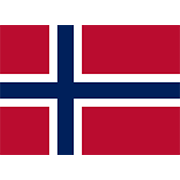Fiscal subject related
The Norwegian Ministry of Finance has initiated a detailed evaluation regarding the potential implementation of mandatory e-invoicing and digital bookkeeping, with Skatteetaten (the Norwegian Tax Administration) tasked with reviewing the options. This evaluation is expected to submit initial proposals by June 2025, and the Ministry is particularly interested in adopting elements from Denmark's established e-invoicing and bookkeeping regime. The overarching goal of this initiative is to achieve efficiency gains that could save local businesses over NOK 5 billion annually.
Norway has already implemented the Standard Audit File for Tax (SAF-T) for VAT returns but has hesitated to mandate e-invoicing due to a relatively low incidence of VAT fraud. The proposed review will explore several areas:
- Mandatory Digital Bookkeeping: Assessing the requirements for businesses to maintain digital records,
- Electronic Accounting Systems: Establishing standards for systems that must support e-invoicing,
- Mandatory E-Invoicing: Evaluating the feasibility of requiring e-invoicing for transactions between private businesses.
A likely approach could involve setting requirements for electronic accounting systems, making system suppliers responsible for ensuring compliance with mandatory e-invoicing functionalities, similar to Denmark's model.
Norway has made strides in e-invoicing since implementing B2G (Business-to-Government) e-invoicing in 2019. The country has adopted two primary standards:
- EHF (Elektronisk Handelsformat): A format based on the Universal Business Language (UBL),
- Peppol BIS 3.0: A standard used for cross-border transactions, facilitated through the Peppol eDelivery Network.
Currently, there are around 70 different Peppol BIS compliant solutions utilized within the private sector. Norway has also fully integrated the European standard on e-invoicing, EN16931.
This initiative follows a similar review undertaken by neighboring Sweden two years ago, although progress in Sweden has stalled since then. Additionally, the EU's upcoming VAT reforms will mandate B2B e-invoicing for intra-community supplies starting July 2030, which further emphasizes the need for Norway to align its practices with broader European standards.
The Ministry of Finance's evaluation into mandatory e-invoicing and digital bookkeeping represents a significant step towards modernizing Norway's tax administration processes. By potentially adopting a framework similar to Denmark's, Norway aims to enhance efficiency within its business environment while also preparing for future EU regulations. This initiative not only seeks to improve compliance and reduce administrative burdens but also positions Norway as a proactive participant in the evolving landscape of digital financial management.
Other news from Norway
Norway: VAT Framework Overview
 Norway
Author: Ivana Picajkić
Norway
Author: Ivana Picajkić
Norway operates a high VAT system with a 25% standard rate and reduced rates for food, transport, accommodation, and cultural services, applying equally to domestic and foreign businesses once turnover exceeds NOK 50,000. While outside the EU, Norway closely aligns with European VAT principles, enforces strong digital compliance (cash registers, SAF-T, postponed import VAT), and is moving toward m... Read more



Norwegian Parliament Sets VAT Rates for 2026
 Norway
Author: Ivana Picajkić
Norway
Author: Ivana Picajkić
The Norwegian Parliament (Storting) has adopted its annual VAT resolution for the 2026 budget year, confirming that the general VAT rate will remain at 25% from 1 January 2026, alongside existing reduced rates. Read more
Subscribe to get access to the latest news, documents, webinars and educations.
Already subscriber? Login


Reminder: Norway Moves Toward Mandatory E-Invoicing and Digital Bookkeeping
 Norway
Author: Ivana Picajkić
Norway
Author: Ivana Picajkić
Norway has launched a consultation on introducing mandatory digital bookkeeping and B2B e-invoicing, led by the Norwegian Ministry of Finance, with the aim of modernising accounting, reducing administrative burdens, and improving transaction traceability. Under the proposal, businesses would be required to send e-invoices from 1 January 2028 and receive e-invoices and maintain digital records from... Read more



Norway: Businesses Must Create Daily Z Reports, Printing Can Follow Later
 Norway
Author: Ivana Picajkić
Norway
Author: Ivana Picajkić
Under the new bookkeeping rules, businesses using cash register systems must prepare a daily cash settlement. Read more
Subscribe to get access to the latest news, documents, webinars and educations.
Already subscriber? Login


New document was uploaded: EV-chargers from the Fiscalization Perspective in Norway
 Norway
Author: Ivana Picajkić
Norway
Author: Ivana Picajkić
The purpose of this document is to explain rules regarding the treatment of EV chargers for electric vehicles in Norway in relation to fiscalization. The document will explain whether they are subjects of fiscalization or not, whether there are some special rules and regulations, or if there are some special rules Read more
Subscribe to get access to the latest news, documents, webinars and educations.
Already subscriber? Login


Norway: Stored Receipts Must Be Closed Before Day-End
 Norway
Author: Ivana Picajkić
Norway
Author: Ivana Picajkić
The Norwegian Tax Administration mandates that businesses finalize all sales before issuing a daily Z report. Read more
Subscribe to get access to the latest news, documents, webinars and educations.
Already subscriber? Login


Reminder: Norway’s Strict Rules on Invoices
 Norway
Author: Ivana Picajkić
Norway
Author: Ivana Picajkić
The Norwegian Tax Administration has reiterated that invoice numbers must not be altered and may only be generated through certified invoicing software or pre-printed forms bearing the seller’s enterprise details. Read more
Subscribe to get access to the latest news, documents, webinars and educations.
Already subscriber? Login

